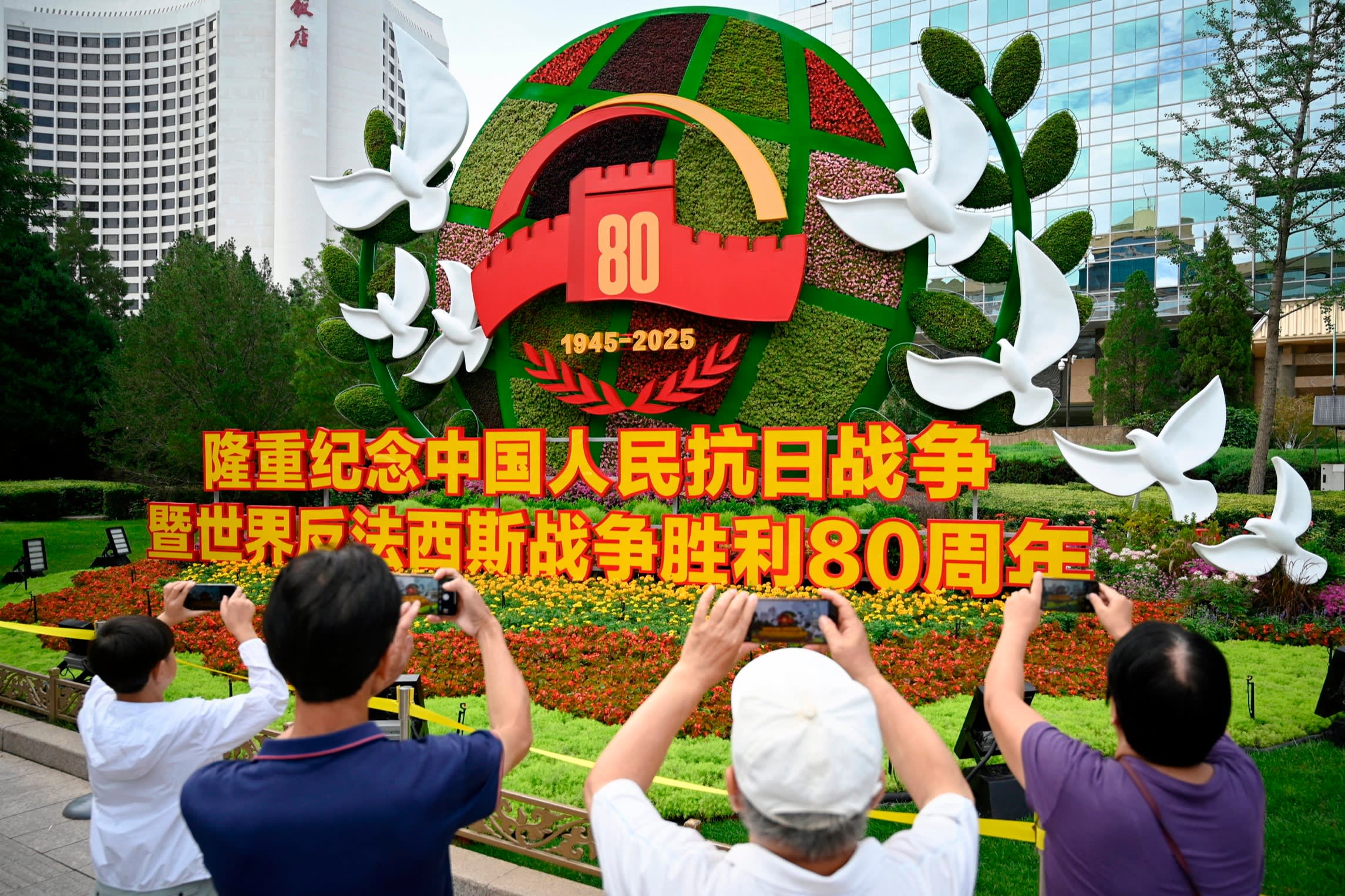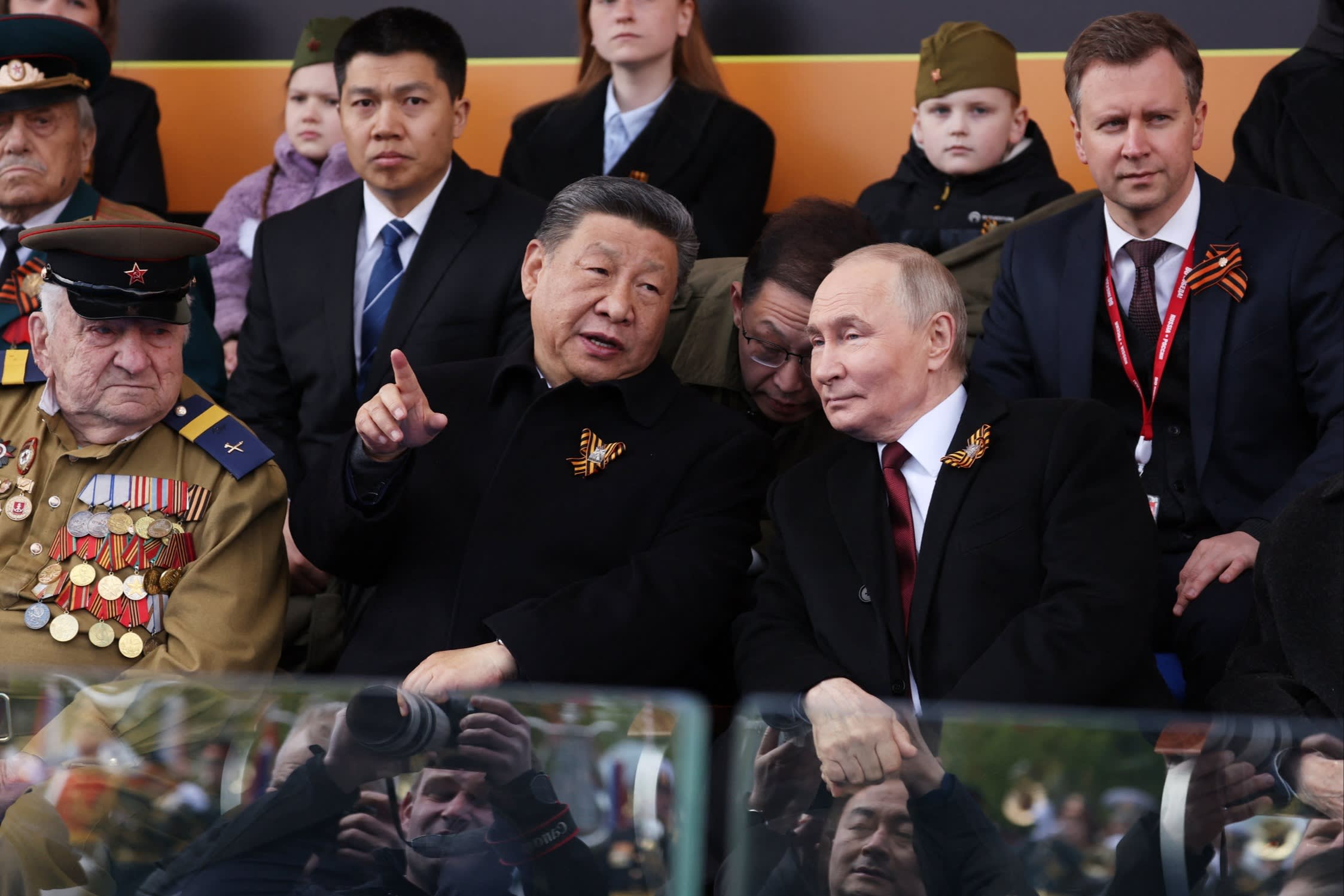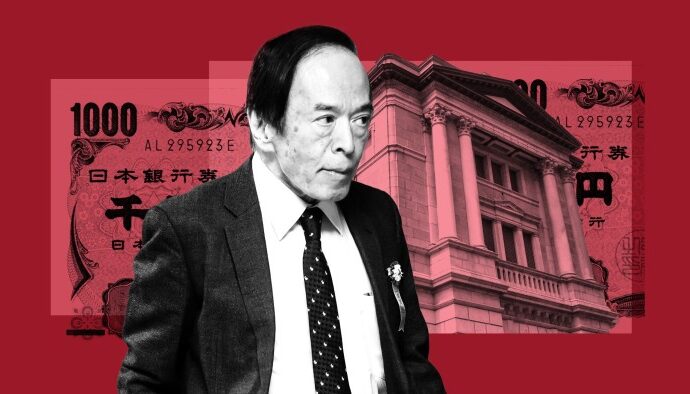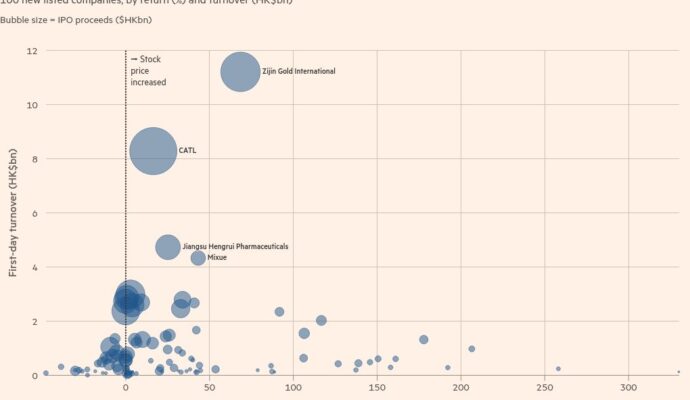China’s leader Xi Jinping will this week mark the 80th anniversary of Japan’s defeat in the second world war with a lavish military parade, as Beijing seeks to recast history with itself in the role of guardian of the postwar international order.
Flanked by Russia’s Vladimir Putin, North Korea’s Kim Jong Un and a score of leaders including those of Iran, Myanmar and Pakistan, the Chinese president will show off military hardware from hypersonic missiles to autonomous vehicles on Wednesday.
But while the weaponry and the presence of countries considered pariahs in the west will draw attention and concern, Beijing’s underlying goal is more subtle, analysts said.
Xi wants to amplify China’s role in the second world war and the ensuing peace, when the new global order was established under the auspices of the UN. He also wants to use the anniversary to reinforce China’s claims of sovereignty over Taiwan, and its standing among developing countries as an alternative leader to the US.
Speaking on Monday at a meeting of the Shanghai Cooperation Organization security group in Tianjin, where China is hosting leaders including Putin and Indian Prime Minister Narendra Modi, Xi called on countries to promote the “correct” perspective of the second world war and support multilateralism.
As US President Donald Trump shakes up the multilateral system, Beijing sees an opportunity to reinterpret the international order and advance its ambition of a multi-polar world, analysts said. The victory day anniversary is a vehicle for that narrative.
“It’s a good global context for China to use this moment to say: ‘Hey, you know, here we are, the originator of multilateralism — now we’re taking multilateralism in a new inclusive direction’,” said David Bandurski, director of the China Media Project and an expert on Chinese propaganda.

For Beijing, an important first step is to reshape common narratives about China’s role in the Allied victory in the second world war and play down the US contribution, analysts said. China dates its “war of resistance against Japanese aggression” to 1931 — a decade before the US entered the conflict.
“China and the Soviet Union were the principal theatres of that war in Asia and Europe respectively,” Xi wrote ahead of a visit in May to Moscow, where he watched Russia’s Victory Day parade alongside Putin, who he has called his “old friend”.
“The two countries served as the mainstay of resistance against Japanese militarism and German Nazism, making pivotal contributions to the victory of the World Anti-Fascist War,” Xi said.
For Beijing, part of its effort to shift the US-led “rules-based international order” is aimed at reinforcing its claims over Taiwan.
In Xi’s last second world war anniversary speech in 2015, he did not mention Taiwan. Communist party propaganda that year acknowledged the role of China’s wartime Kuomintang nationalist government.
That was due to improving relations at the time between Beijing and a KMT-led government in Taiwan, where the nationalists fled in 1949 after losing a civil war with the Communists. The nationalists had taken the main role in fighting Japan, and their government led the postwar negotiations.
This year, the Communist party is pushing hard on the narrative that they were the central pillar in the war of resistance against Japan
Since 2015, China has also become more aggressive towards Taiwan, holding extensive military exercises, particularly after last year’s election of Democratic Progressive party President Lai Ching-te, whom Beijing considers a dangerous separatist.

Beijing roots its claims over Taiwan in two Allied wartime arrangements — the Cairo and Potsdam declarations — that called for Taiwan to be returned from Japan to China after the conflict.
This year, it linked these pacts for the first time to the UN’s 1971 “derecognition” of Taiwan’s then-KMT government to support Beijing’s sovereignty claim over the island, said Chang Wu-Ueh, director of the Center for Cross-Strait Relations at Taiwan’s Tamkang University.
“China’s sovereignty claims . . . are profoundly connected to its support for the UN as the core organization of postwar global governance,” Kainan Gao and Margaret Pearson wrote in a paper for the Brookings Institution.
Such narratives are disputed in the west. The US, by contrast, cites the 1951 Treaty of San Francisco — in which the Allies formally ended the war with Japan — which left open the question of to whom Tokyo should cede control of Taiwan. Beijing rejects this treaty.
And while experts acknowledge China’s immense sacrifices, “you have to acknowledge that in the end, the Pacific war between the US and Japan is the one that’s decisive in terms of ending the war”, said China historian Rana Mitter. The Soviet Union also largely sat on the sidelines due to a non-aggression pact with Japan.
For many in the west, Wednesday’s victory day parade itself — and the attendance of leaders such as Putin amid Russia’s full-scale war in Ukraine — will undercut Beijing’s message as champion of stability and multilateralism.
“Beijing’s attempts to take advantage of Trumpian chaos to shore up its international image has its limits,” said Amanda Hsiao, director for China at consultancy Eurasia Group.
“In this case, it will be undercut by a massive display of military hard power and its close ties and narrative alignment with Moscow.”
Ultimately, however, the parade and Xi’s efforts to change the narrative of the war are mainly aimed at a domestic audience and partners in the global south, not the US and its allies.
“This is a good way to show the party domestically, internally, that Xi Jinping and the current leadership of the politburo standing committee is strong and globally respected,” said Bandurski.

